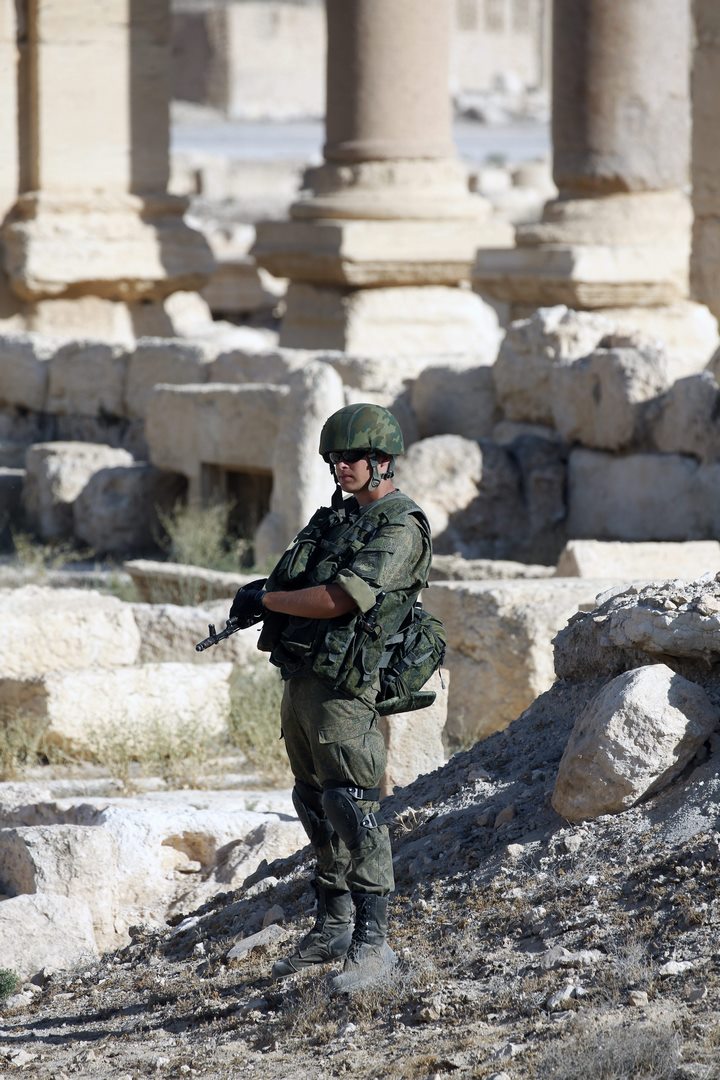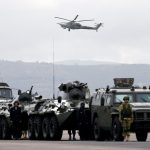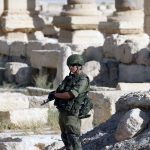RUSSIA MONITOR
Date: 15 July 2017
Problems with the Russian plan for Syria
The plan for the creation of four so-called “de-escalation zones” in Syria, elaborated on by Moscow, is facing more and more obstacles. There is a progress related to the south zone, which may be considered as the effect of the talks with the USA and Jordan – but there are some serious problems with the other three. The Syrian opposition still does not agree to Iran’s presence during the arbitration; also Turkey delays its decisions. Moreover, the pressure on the Asian allies of Russia to make them secure potential security zones doesn’t bring any effects.

At the end of June, it was revealed that Moscow was carrying out some negotiations with the aim of deploying troops to Syria’s peacekeeping forces in Kyrgyzstan and Kazakhstan. Arrangements for this matter were to take place during the next round of peace talks in Astana. However, the Russian efforts ended in failure – not only in terms of extending the circle of states eager to engage themselves in the “de-escalation zones” project.
The fifth round of talks in the capital of Kazakhstan took place on July 4-5, as a result, the Russians counted on another milestone in bringing their plan into life. However, the Russian-Turkish-Iranian trio has not reached an agreement on the final details of the creation of the so-called “de-escalation zones” in Syria. The head of the Russian negotiators asserted that the case was “basically agreed”, but there was still no agreement on the zones territory and the peacekeeping forces composition. Alexander Lavrentiev added that the Turkish representatives asked for more time as they had wished to prepare themselves for their participation in the zone surveillance. According to the head of the Kazakh diplomacy, Kairat Abdrakhmanov, Russia, Turkey and Iran will probably discuss details of the zones in Tehran on August 1-2. The sixth round of talks in Astana will take place at the end of August.
It is possible that, until then, Moscow will be able to convince its allies from Central Asia to send their troops to Syria. Lavrentiev, whose words have been quoted above, said that Russia had called on member states of the Commonwealth of Independent States (CIS) to consider sending military observers to the “de-escalation zones”. The case became widely discussed when the chairman of the Duma defense committee and the former air force commander General Vladimir Shamanov said that Russia was negotiating with Kyrgyzstan and Kazakhstan in order to convince them to send their troops to Syria. They would join the international contingent whose aim was to monitor whether the truce is respected within the so-called “de-escalation zones”. On the same day, there was an information from Ibrahim Kalin, a special representative of the President of Turkey on Syria. He confirmed that the Russians were continuing its discussions about military observers from Kazakhstan and Kyrgyzstan. Ankara sought to mention this topic during the fifth round of talks in Astana in July. The outcome of these talks confirmed that the Kyrgyz and Kazakhs don’t even rush to send their soldiers to a “foreign war”. They put numerous conditions, but it is possible that this is just a strategy used during negociations with Moscow, which invokes an alliance within the Collective Security Treaty Organization (CSTO).
Of course, from a military point of view, sending to Syria even hundreds of Kyrgyz and Kazakhs doesn’t have any special meaning. What seems to be important is the political aspect. In this way, Putin seeks to expand its own international coalition. Today, in fact, its only military ally is Iran. Such a situation can’t be compared to another coalition fighting against the Islamic State in Syria led by the United States.
All texts published by the Warsaw Institute Foundation may be disseminated on the condition that their origin is credited. Images may not be used without permission.










